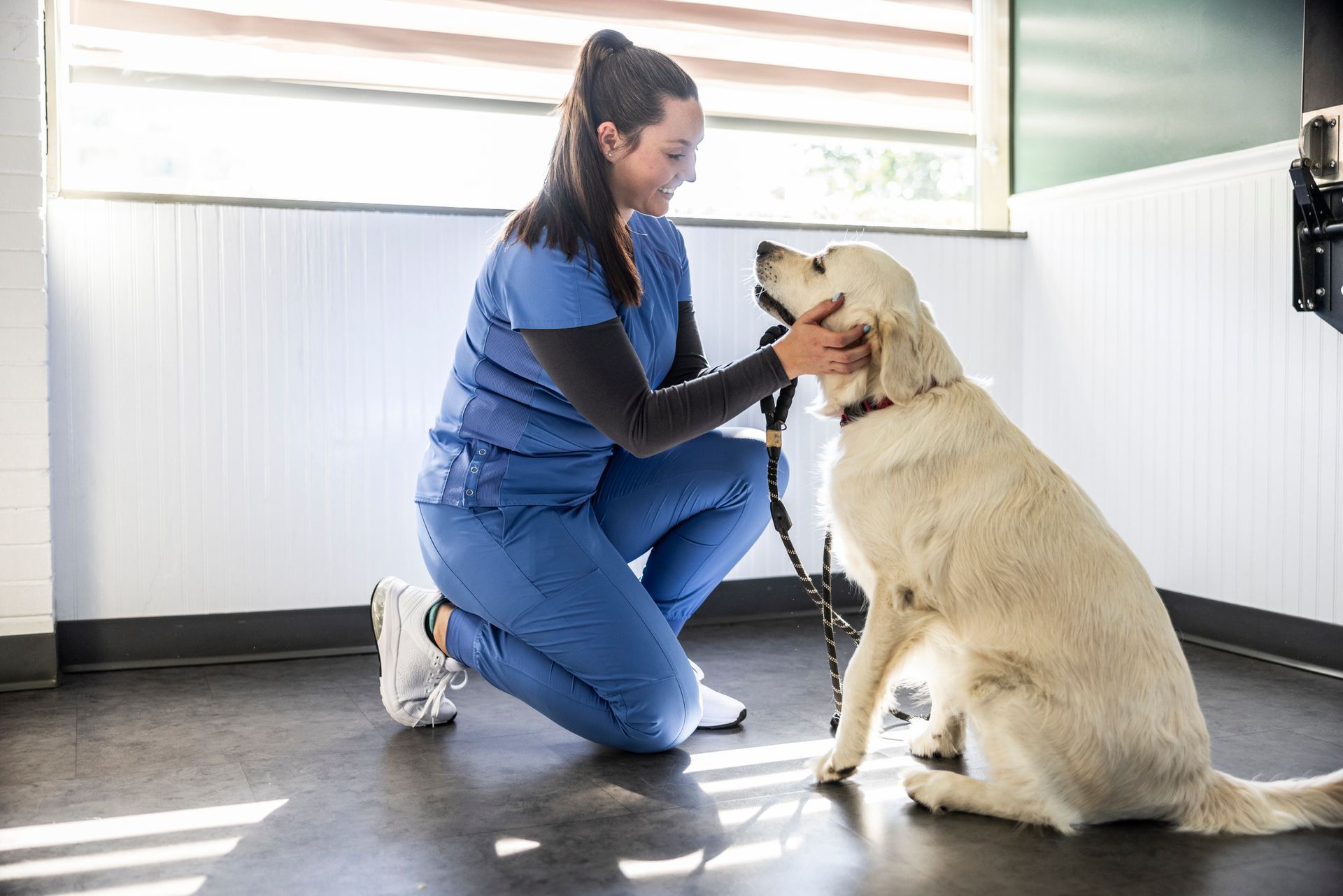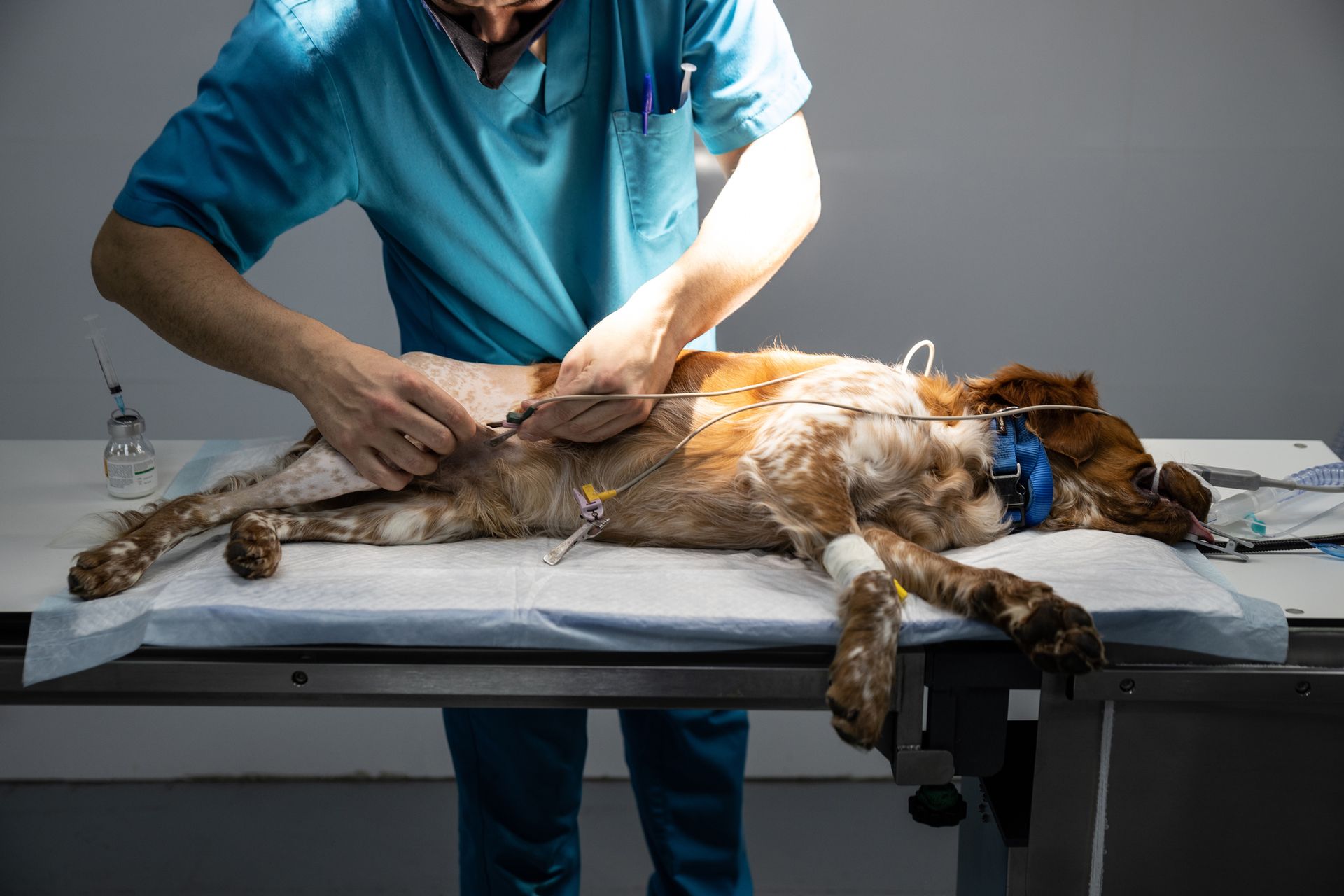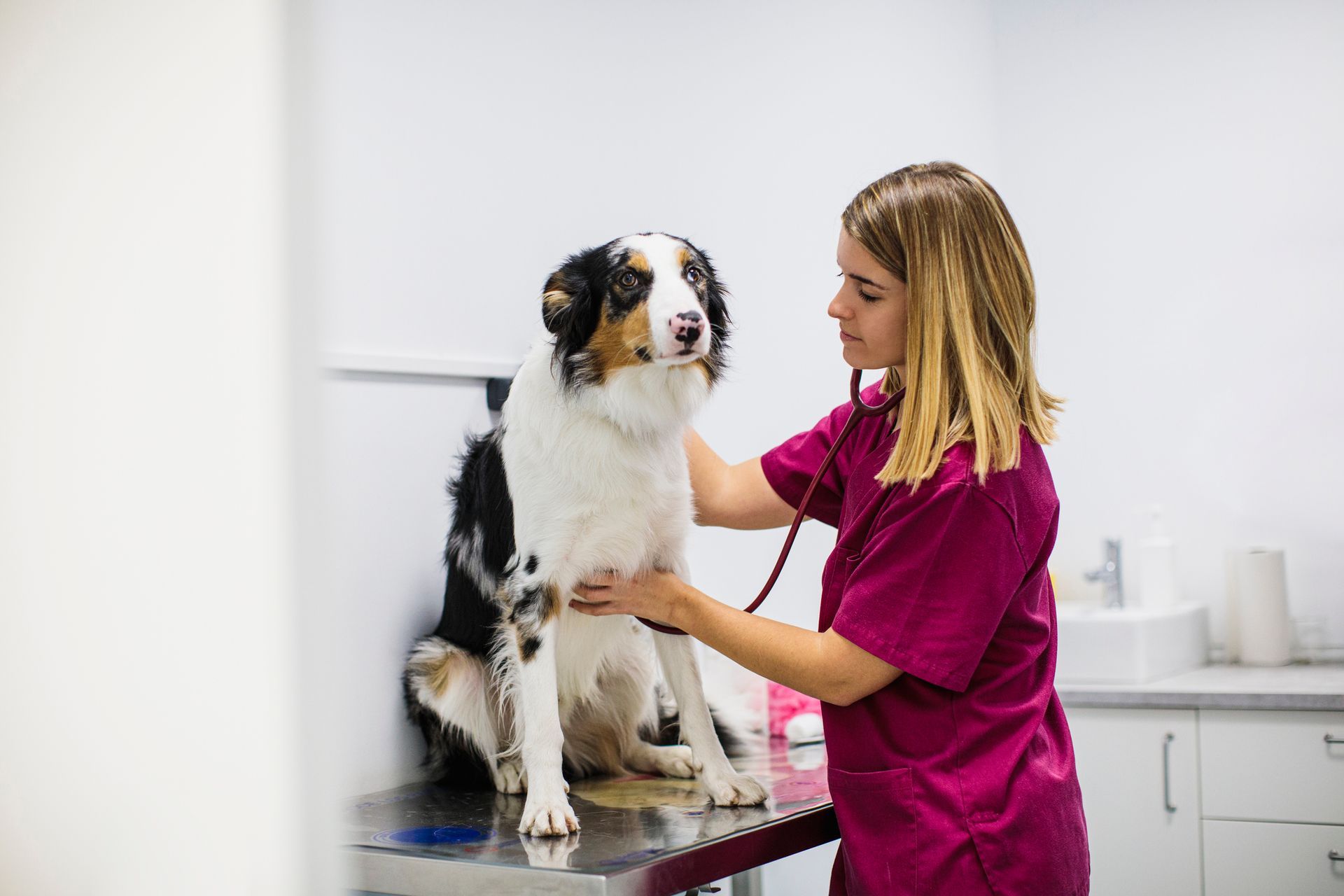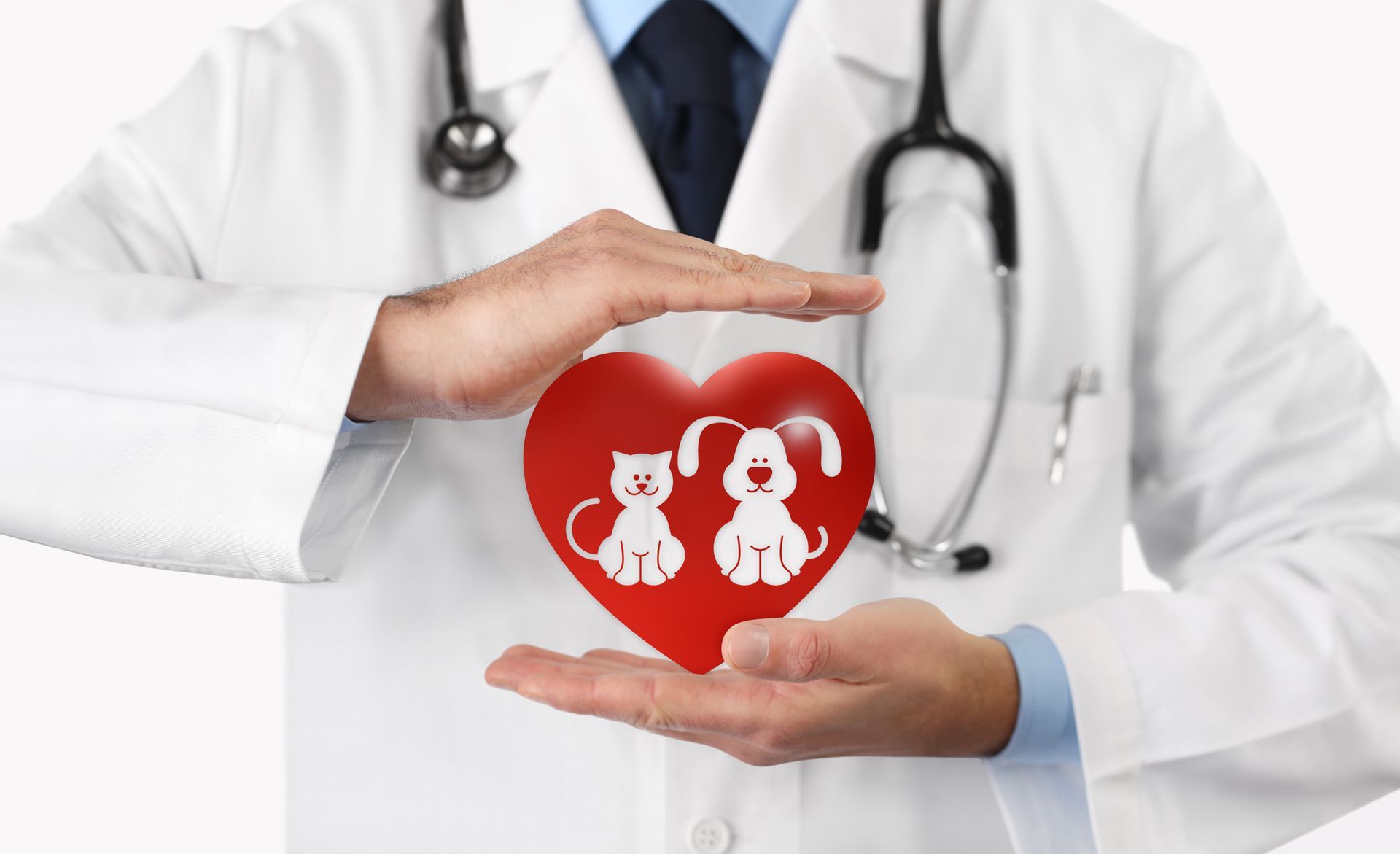5 Reasons Why Your Dog May Be Losing Weight
- A wide variety of conditions and problems can cause weight loss in dogs. Here are five reasons why your pet may be avoiding meals or losing weight.
1. Food Issues
Have you changed your dog's diet recently, or has their standard dog food been reformulated? Some dogs are picky eaters who don't adjust well to changes in their diets. Even if their kibble manufacturer has only changed a few ingredients in their dog food recipe, a picky dog may notice and turn their nose up at the strange new tastes and smells.
Dogs may also develop food aversion in stressful situations. For example, if you bring a new pet home or you have an aggressive dog that eats near a submissive dog, the submissive dog may be too fearful or anxious at mealtimes to eat.
If you've moved recently, the tap water may taste different than the tap water at your old place. If you mix your dog's kibble with water to moisten their meal, the changed flavor of the water may be putting your dog off from eating.
2. Diabetes Mellitus
Diabetes mellitus is one of the canine diseases that can cause rapid weight loss in dogs. Dogs who lose weight because of diabetes often show other symptoms along with food aversion and declining condition.
Along with unexplained weight loss, signs of diabetes in dogs may include the following symptoms:
- Excessive water consumption
- Frequent urination
- Increased hunger
- Cataract formation
As with the human disease, canine diabetes mellitus is a disease in which a dog lacks enough insulin to break down blood sugar for nutrition. Without proper levels of insulin, a dog's system begins breaking down proteins and fats to use for energy, which eventually leads to serious physical decline in the pet.
If your dog's veterinarian suspects your dog has diabetes mellitus, the veterinarian will run tests including blood glucose tests and urinalysis. Treatment for canine diabetes mellitus normally includes insulin injections and a specialized diet.
3. Pain Issues
Painful physical conditions may cause your dog to stop eating. For example, an abscessed or broken tooth can make chewing difficult for your dog. If your dog has lesions on their tongue or sores inside their mouth, their dry kibble may hurt to chew, so the dog avoids eating.
An ingredient in your dog's chow may cause painful digestive issues. Bloating, cramps, and gas may make your dog uncomfortable after they eat, so the dog loses its appetite for their favorite foods.
If your dog recently got into the trash, they may have developed a blockage in their gut that doesn’t allow food to move through the digestive system. Watch for the following signs to determine if a serious blockage or other painful physical problem could cause your dog to avoid food:
- Abdominal pain
- Yelping when stomach is touched
- Drooling or panting
- Anxiety or lethargy
- Vomiting
- Strange breathing sounds
Take your dog for a checkup if any of the above signs are present. A tumor, foreign object, or simple allergic reaction can cause pain in dogs that's severe enough to make them stop eating or lose weight.
4. Cancer
Drastic weight loss and loss of appetite can be indications that your dog is suffering from cancer. Because cancer changes the way the body uses nutrients, weight loss is often one of the first symptoms that dog owners observe in their sick pets.
Other signs of cancer in dogs include:
- Bad odors from dog
- Coughing or shortness of breath
- Skin sores that don't heal
- New cysts or swollen spots
- Limping and other mobility issues
- Urination and defecation changes
- Excessive drool
- Eating problems
- Exhaustion
Dogs with cancer may also exhibit changes in their personality. Schedule an examination for your dog if you suspect your dog has cancer. Your dog's veterinarian can perform diagnostic tests to confirm or rule out the presence of cancer, and will advise you on the various treatment plans available for your pet.
5. Other Weight-Affecting Diseases and Issues
Kidney disease can cause weight loss and loss of condition in dogs. A simple blood test can determine if your dog is suffering from kidney problems.
Heavy parasite loads can lead to weight loss in dogs. Your pet's veterinarian will check your dog for worms and other parasites if this is the suspected cause of your dog's weight issues. Once the parasites are eliminated from the dog's system, your dog's weight should improve.
Surgery, drug reactions, stress, heart disease, and other issues may also cause weight loss in canines. If your dog is refusing to eat, losing weight, or has any other digestive or feeding issues, play it safe and let the veterinarian take a look at your pet. Chances are good that your dog's weight loss can be managed with your veterinarian's guidance and a few changes in your dog's routines.
Calm your worries about your dog's weight loss in the Seattle region by contacting South Seattle Veterinary Hospital today. We offer a full range of diagnostic and treatment solutions to address your dog's sudden weight loss.











